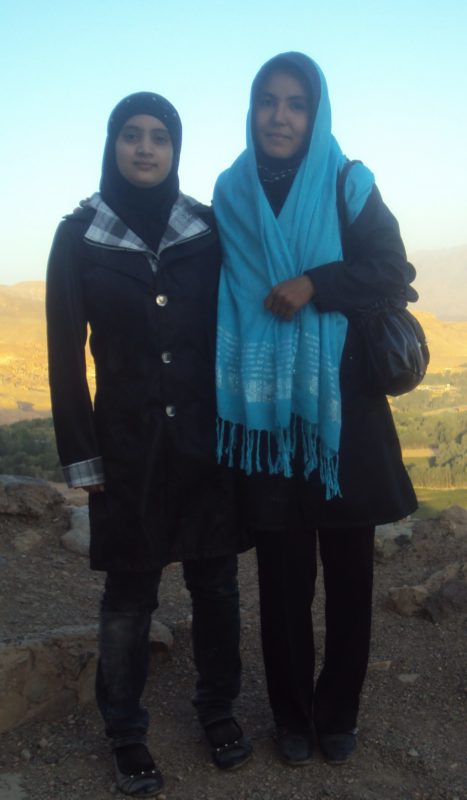Soha Manalai: Resilience and Perseverance Exemplified

Katherine Gouldin
Brand Communications AssociateSoha Manalai, Accounts Receivable Specialist on the Accounting Team for PS, is impossible to defeat. Soha’s powerful story was recently put into words in the new book, Indomitable! Immigrants’ Stories of Perseverance and Resilience by Margery Leveen Sher. Soha, now 23 years old, migrated to the United States from Kabul, Afghanistan at the age of 19 in the summer of 2016.
Soha comes from a family who believes women should be educated; however, many of the girls in her neighborhood were not allowed to attend school. From a young age, Soha’s passion for helping others came to fruition as she found a way to take her knowledge and share it with as many other young women as she could reach. At the age of 13, Soha began teaching the neighborhood girls whose ages ranged from 6-18 years old. Not only was Soha teaching the girls academics, but she was teaching them about their rights – what they could do and where they could go in life.

Soha with one of her first students when she started the campaign for women’s rights.
Soha began working for an organization that helped women to understand their value, but funding ran out. She then opened her own organization with funding from her uncle. Many of the girls Soha taught were married when they were between 14-18 years old, which was before they understood how they were being treated by their husbands was cruel and unjust. It was all they knew; they believed this behavior was normal. Soha’s teachings to them were much more than about literacy, but about what they deserve.
“There were no women that fully knew their rights, they were sexually and mentally abused and there was no safe place for them. The women don’t think they have options and they think it is a normal life for all women. I included this information about relationships and behaviors in the education. When the girls understood, some of them discussed their rights with their families and convinced them not to behave cruelly towards them. However, some of them could not convince their families to stop abusing them. This is when the conflict began.”
Because she continued to offer this education to girls, the local men began to threaten Soha. One day, Soha was teaching about seven girls in a classroom, and men could not go inside the classroom because it is against their culture to enter the room where women are located. They broke Soha’s windows and threatened her not to come to that village again. Many people accused Soha of espionage, assuming because of her values that she aligned with western culture – this was far from their own culture, so they assumed her to be an American spy. But Soha kept teaching.
In 2016 Soha received a scholarship and a VISA to attend Western Michigan University, so she traveled to the United States alone. When the university failed to pick her up from the airport, Soha waited several hours before booking a room at a motel. The next day, without a phone she walked for two hours to the university. She then found out that the scholarship did not cover housing, food, or English classes. It was unsafe for her to return home, and even her family back in Afghanistan had to move to a different area because of the threats.
Soha remembers the advice she once received from a teacher. Soha recounts, “Sarah (the teacher) told me living in the United States is hard and there are a lot of obstacles. But you have to do what you want to do. You have to follow through. So, I always have a goal, but I also always have a plan B to get to that goal. Follow your goal.” Soha’s plan B in this case scenario was to move to Northern Virginia, where her aunt had been living. Soha went to Virginia and lived with her aunt, and saved money by teaching English to connections she made through her aunt.
Soha’s motivation for coming to America was to get an education in order to help as many women as possible.
“Because I didn’t have a higher education, I couldn’t help as many women as I wanted. My organization was small, I was helping a few women but that wasn’t my goal. My vision is to support more women because there are more than 10-12 women who are in need of support. The only way I could help more women is if I first helped myself and got a higher education that would make it possible for me to start a business. I want to start a business so I can turn my vision into reality and support my organization that works for women’s rights.”
There is no doubt that Soha has shown perseverance as a strong value throughout her life. “Don’t give up on your goals,” Soha says, “Despite obstacles and difficulties, never give up on your dream.”
Soha says that there are surprisingly many similarities between Afghanistan and America, and that we are all just looking for a feeling of belonging. “I was thinking that everyone here was living their own lives and not thinking about others. But everyone I met helped me. People in the US are so warm and helpful. Everywhere you look there is a new opportunity.”
Soha continues, “The culture in Afghanistan is similar to the American culture in some ways. The connection with people is the most important thing for both cultures. We are human, we must help other humans, other women. Women need help. It doesn’t mean if you have a good life, you can just enjoy your life and not care about other people’s lives. There are women who need help, we must do something for them. If we don’t do it, who will?”
“Whatever goal you are here for, follow that goal. It might be hard to achieve; you may get distracted and it seems difficult. But it’s not impossible. Work hard for it. People’s generosity here in the US only inspires me to get to my goal faster, to run my engine faster.”
Soha is a direct example of working hard for what she wants. Soha is continuing to work for PS and attend college. She is planning on graduating by the end of 2020, and we are certain that Soha will continue tracking towards her goal, and fulfill her dream of starting an organization or business with her mission of helping and educating women.
About the Author

Katherine Gouldin
Brand Communications Associate©2026 Production Solutions, Inc., a Moore Company. All rights reserved.
4200 Parliament Place, Floor 3, Lanham, MD 20706 | Privacy Policy





